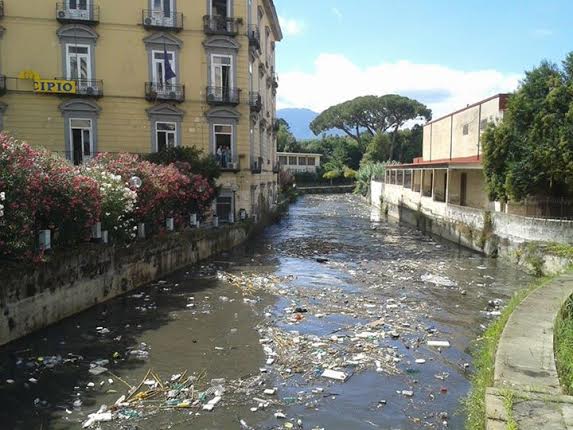Why are the Waters in Lehi’s Dream Represent Filthiness but also the Love of God?
There is a puzzle in Lehi’s dream, little remarked on, that I think I have solved. The answer is continuing revelation.
The puzzle has to do with the river of water and the fountain from which they come.

First, Lehi sees a river of water that runs near the tree. The “head” of the river isn’t far away. His whole family is at the head. When he calls, most of his family come from the head of the river to the tree, but Laman and Lemuel won’t. (1 Nephi 8) Later in the chapter he mentions a “fountain” that has depths, in which many who are lost drown.
Nephi is later told that the water represents filthiness, “the awful gulf which separates the wicked from the tree of life,” and hell. Then, without explicitly making a connection, in the very next verse Nephi says “our father also saw that the justice of God did also divide the wicked from the righteous.” It’s not necessary to the point I’m making, but it seems that the waters, and the chasm or gulf it runs through, have some connection with unrighteousness but also with God’s justice. (1 Nephi 15) I Nephi 12 also calls the gulf
The angel gives Nephi the same description earlier, though with less detail. “Behold the fountain of filthy water which thy father saw; yea, even the river of which he spake; and the depths thereof are the depths of hell.” (1 Ne 12). This is more or less the same thing, except here the river is called a fountain. The idea of a fountain seems to connect with the idea of the “head” of the river in back in chapter 8. Here the gulf is also mentioned further on. It is “terrible” and literally divisive, but also associated with God’s justice.
But here’s the peculiar thing. Here’s the puzzle. In 1 Nephi 11, the fountain is a good thing and is the same as the tree of life and represents love.
I beheld that the rod of iron, which my father had seen, was the word of God, which led to the fountain of living waters, or to the tree of life; which waters are a representation of the love of God; and I also beheld that the tree of life was a representation of the love of God.
Earlier in their journey, Lehi compares Laman and Lemuel to, and asks them to be as righteous as, a valley and river. (1 Nephi 2) As already mentioned later in Nephi’s interpretation of the dream they are associated with a river of filthiness flowing through a gulf that represents hell.
I needed to get all that scripture out first, but let me now make the point succinctly and clearly. At different times in Lehi’s dream and the interpretations thereof, the river/head of the river/fountain seem to be associated with the tree of life and righteousness and love, but later with filthiness. The river starts as a fountain but as it gets further from the source, it represents wickedness and the terrible justice that condemns the sinner.
There are two approaches to dreams. The approach we normally take with Lehi’s dream is to take it as a series of static images, each of which has a fixed meaning and which fit together into one interpretative whole. You could draw a picture with labels for each part of the dream analogy.
The other approach realizes that dreams often wrap in on themselves. Things seen at one time often represent a parallel or a development of what happened in the dream earlier. This type of dream fits with a lot of Hebrew poetic style.
So my proposition is simple. The fountain represents, specifically, the law of Moses. More generally, it originally represents a valid revelatory experience of the love of God but with time as people cling to it instead of moving on to continued experiences of continued revelation and love, it becomes contaminated with unrighteousness and falls under God’s condemnation.
All of the puzzling contradictions about the water are really the same as the people who “cling” to the iron rod, taste the fruit once, and then wander off. It’s about refusing continuing personal and dispensational revelation. What was sweet then becomes bitter. What was love then becomes damnation. What was clean becomes filthy.
seriouslypleasedropit
February 29, 2024
Oh, this is excellent.